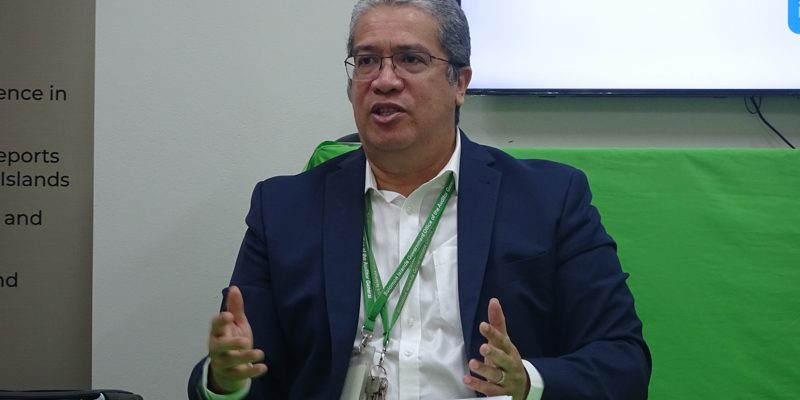OWNER of Kubonitu Holding Ltd, Duddley Longamei has denied any wrong doing when receiving $2.5 million under the Economic Stimulus Package to export kava overseas.
Longamei was responding to a case study in the newly released audit report in the $309 million ESP.
David Dennis from the Auditor General office released the report last week.
The case study does not mention his name and the company.
However, based on research, Kubonitu Holding Ltd is among three companies that exported kava in the country and it also received $2.5m from ESP.
According to the case study, it states three firms in the business of exporting kava received significant grants. Two of these were existing businesses, one, was incorporated in 1989 and the other in May 2019. These two firms received $0.67 million each.
The third kava exporter, to receive a large grant was a new business formed after the start of COVID-19 and received the largest grant of $2.5 million.
The owner of the company and sole director of this new company was still working as the General Manager of one of the rival companies, as late as September 2019 when he submitted the annual return for that company.
The owner had registered the name of this new business when he was still the General Manager of the existing kava business in May 2019 but the new company was not registered until 13 October 2021 and its was deregistered in May 2023 for failing to submit an annual return to Companies Haus.
In fact, after its creation it never submitted any returns at all.
When Solomon Star contacted him over the case study, he confirmed setting up the company after his contract ended with Varivao Holdings Ltd in 2018.
He decided to start up the new kava company to support his family during the Covid-19 period.
The audit report states company stated in the media that it had spent all the $2.5 million on buying kava but media reports indicate that some of the funds were used to purchase a truck for the new business.
The Guidelines on the Disbursement of ESP Funds provide that eligible kava exporters would need to have a recent export history. When the new business exported a container of kava to the United States in September 2020, media reports indicated that the owner was proud of having exported his first container.
However, Longamei said the ESP Oversight Committee in the Prime Minister Office visited him and saw the contract he has with a buyer overseas.
As such, the officials encouraged him to apply for the ESP funding to support his business during the Covid-19.
“I applied and got the funding,” he said.
The case study states in exchange for agreeing to accept a grant of $2.5 million, the company sought to exclude the Solomon Islands Government from providing similar grants to other kava exporters, which automatically targeted the owner’s previous employer.
However, Longomai has denied this allegation.
He said it is government’s business and he has nothing to do with this.
Having signed the agreement, the Solomon Islands Government ignored this clause and provide smaller amounts to the two other exporters.
As the applications submitted by businesses to receive grants were not made available to the Office of Auditor General (OAG) despite repeated requests, it was not possible to review the analysis which determined that providing $2.5 million to a new company rather than focusing on existing exporters was the most effective way of supporting the kava export industry.
By EDDIE OSIFELO
Solomon Star, Honiara









